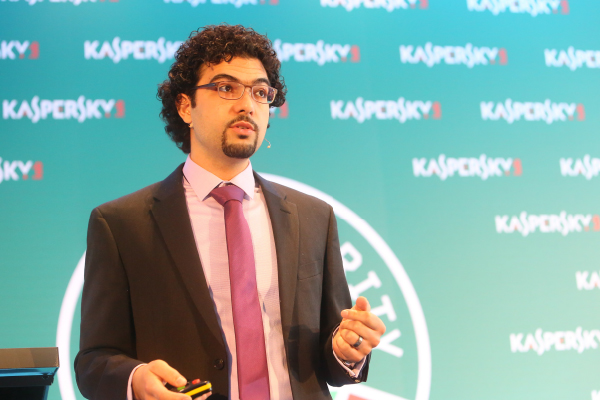Cyber criminials are becoming more organised and taking higher bounties. Kaspersky Lab’s Cyber Security Weekend for the Middle East, Turkey and Africa kept CNME abreast of changes in the security landscape and predicted what we can expect in the coming year.
Kaspersky Lab’s Cyber Security Weekend for the Middle East, Turkey and Africa took place 26th to 29th April in Lisbon, Portugal and brought together specialists from the company’s Global Research and Analysis Team (GReAT) and Global Product and Technology Marketing Department, as well as experts from EY, journalists and business guests.
The conference discussed global and regional cyber threats and security trends, corporate IT issues, and what security measures are needed.
“At Kaspersky Lab we believe that to eliminate the risks brought by the Internet and new technologies a combination of factors is needed: comprehensive technologies, including those for critical infrastructures and high-risk industries; education of the general public and businesses; and law enforcement and international cooperation,” said Sergey Novikov, Deputy Director, GReAT, Kaspersky Lab. “A complacent attitude towards cybersecurity doesn’t only put money, data and reputation at risk, but also prompts the spread of cyberthreats.”
Kaspersky Lab’s analysis of IT threats in the first quarter of 2015 indicates that in the Middle East, Turkey and Africa region an average of 41 percent of users had security incidents related to local networks and removable media while 21 percent of users faced web-related threats. Kaspersky Security Network cloud service statistics for January-March 2015 show that Egypt continues to have the highest number of users affected by local threats (50.5 percent), followed by Qatar (46 percent), Saudi Arabia (45.8 percent) and Turkey (44.6 percent). The highest numbers of web threat incidents were reported in Qatar (31 percent of KSN users faced these threats), UAE (29 percent), Turkey (25 percent) and Saudi Arabia (24 percent). Kenya, South Africa, Bahrain and Lebanon have somewhat lower threat levels: 14-18 percent of users affected by online threats and 33-37 percent by local ones.
Speaking about the threats facing organisations, experts referred to statistics from the 2014 Global Corporate IT Security Risks survey conducted by B2B International and Kaspersky Lab: depending on their country, anywhere from a quarter to more than half of the organisations in the region said they faced viruses and other malware, spam, phishing and software vulnerabilities in the past year. Along with these threats businesses are also preoccupied with network intrusions and targeted attacks, DDoS, loss of data on mobile devices, file sharing and data leaks.
Other speakers included: Raddad Ayoub, Partner, EMEIA Advisory Centre, EY; Sergey Lozhkin, a Senior Security Researcher with GReAT at Kaspersky Lab; and Ghareeb Saad, Senior Security Researcher, GReAT, Kaspersky Lab.




